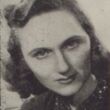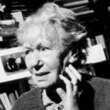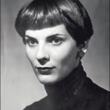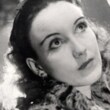The flight of the maidens
Description
More Details
9780786708796
Excerpt
Similar Titles From NoveList
Similar Authors From NoveList
Published Reviews
Booklist Review
The summer between high school and college is always a bittersweet time, but for Hetty, Una, and Lieselotte, this transition is especially trying. Their English village school years coincided with World War II, and even though their futures are bright since all have won college scholarships, their hearts are heavy. Literary Hetty is desperate to escape her interfering and envious mother, if not her beloved grave-digger father, whose spirit was shattered by the First World War. Athletic Una, in love with a boy even poorer than herself, feels responsible for her eccentric but shrewd widowed mother. And shy and intellectual Lieselotte, a German Jewish refugee taken in by Quakers, is wrapped in impenetrable sorrow and loneliness. As each young woman embarks on an unexpected and transformative adventure, Whitbread Award winner Gardam entertains and enlightens with vibrant descriptions and martini-dry wit while subtly musing on the psychic wounds of war, the hazards of sex, the limitations of religion, and the comfort of books. Ebullient, humorous, and wise, this is a novel to savor. Donna Seaman
Publisher's Weekly Review
Here is a great vacation read but it's definitely not a throwaway. Prolific English novelist Gardam, Whitbread Award winner for both The Hollow Land and Queen of the Tambourine, has crafted a story through which readers can step into 1946 England. The war is over and the world is profoundly changed, though some of the old trappings remain, reminders of a faded past. Three Yorkshire girls of considerable intelligence but modest means have earned scholarships to universities in Cambridge and London; the novel is set during the summer before their departure for university. Hetty Fallowes decides "to be ruthless and positive and in charge of [her] own soul." She rebels against her quirky parents, especially her pious mother, who married her intellectual, grave-digging father for love and now regrets it. Plucky Una Vane's mother is using her dead father's office (he was a doctor) as a beauty parlor; Una develops leftist leanings and embarks on a romance with Ray, a boy of questionable background. Lieselotte Klein is a Jewish-German refugee who came to the village as a child to live with a Quaker family. At 17, she is suddenly sent to stay with a strange, elderly Jewish couple in London and finally, briefly, with distant relatives in California. All characters, major and minor, are superbly developed and convincing. The portrait of postwar England as conventions crumble and the country is rebuilt is terrific, drawn by a writer whose attention to detail recreates, lovingly and with bright flashes of wit, another time and place. (July) Forecast: Strong reviews and favorable word-of-mouth will be crucial to help build an American readership for this fine import. (c) Copyright PWxyz, LLC. All rights reserved
Library Journal Review
It is the summer of 1946 in Yorkshire, England. Food and clothing are still being rationed, and everyone is struggling to cope with the changes brought about by World War II. To the delight of the town, three local girls, best friends from secondary school, have won prestigious scholarships to universities in London and Cambridge. But before they depart, they must survive the summer. While Hetty struggles to escape from her battle-scarred father and possessive mother by reading books, Una haltingly asserts her emerging womanhood with a young man from the wrong side of the tracks and of a decidedly leftist political bent. Meanwhile, Liselotte, a Jewish refugee living with a Quaker family since her arrival in 1939 via the Kindertransport, is whisked off to California to meet her last surviving relative. Gardam, two-time winner of the Whitbread Award for The Hollow Land and Queen of the Tambourine, has written a charming and sensitive story of friendship and emotional maturation in a direct, polished style not without humor and irony. Fans of Maeve Binchy as well as the fine British writers of the 1940s and 1950s will find her prose and characters engaging. Recommended. Susan Clifford Braun, Aerospace Corp., El Segundo, CA (c) Copyright 2010. Library Journals LLC, a wholly owned subsidiary of Media Source, Inc. No redistribution permitted.
Kirkus Book Review
With winning charm and wit, two-time Whitbread-winner Gardam (Queen of the Tambourine, 1995, etc.) explores the social and emotional climate of postwar England. Gardam weaves together the stories of three village girls who, between the summers of 1946 and '47, earn university scholarships and prepare to leave their former lives behind. Hetty Fallowes stages a hesitant rebellion against her mildly neurotic, maddeningly possessive mother. Una Vane flutters mothlike toward the flame of left-wing politics and the adventure of having a lower-class lover (a somewhat surly delivery boy). And Liselotte Klein, an orphaned German refugee delivered to England by the Kindertransport, tests her steely stoicism against the reflexive compassion of the Quakers who become her foster parents. Gardam moves among their experiences with sophisticated assurance, enriching the novel's texture with memorable characterizations of the protagonists' acquaintances and especially their elders, notably Hetty's shell-shocked father, a traumatized war veteran who has become a philosophical gravedigger with a hilariously mordant sensibility, and her flighty, effusive mother, who's simultaneously less and more than the smothering monster Hetty believes her to be. This is essentially familiar material (think Muriel Spark's classic The Girls of Slender Means) redeemed by invigorating detail (especially the piecemeal portrayal of how wartime hardships were patiently endured) and an elegiac affection for the excesses and absurdities of youth on the puzzling, intimidating threshold of maturity. Gardam frames her story in dozens of crisp, brief scenes featuring deliciously dizzy conversation ("I've no belief in women with careers . . . It shrinks the womb"). Reading The Flight of the Maidens is a little like listening to your favorite dotty aunt rattle on about bygone days and absent friends: you shake your head in wonder and mild exasperation while the old girl effortlessly charms you. A fine introduction to a quintessentially British novelist who isn't nearly well enough known Over Here.
Booklist Reviews
The summer between high school and college is always a bittersweet time, but for Hetty, Una, and Lieselotte, this transition is especially trying. Their English village school years coincided with World War II, and even though their futures are bright since all have won college scholarships, their hearts are heavy. Literary Hetty is desperate to escape her interfering and envious mother, if not her beloved grave-digger father, whose spirit was shattered by the First World War. Athletic Una, in love with a boy even poorer than herself, feels responsible for her eccentric but shrewd widowed mother. And shy and intellectual Lieselotte, a German Jewish refugee taken in by Quakers, is wrapped in impenetrable sorrow and loneliness. As each young woman embarks on an unexpected and transformative adventure, Whitbread Award winner Gardam entertains and enlightens with vibrant descriptions and martini-dry wit while subtly musing on the psychic wounds of war, the hazards of sex, the limitations of religion, and the comfort of books. Ebullient, humorous, and wise, this is a novel to savor. ((Reviewed July 2001))Copyright 2001 Booklist Reviews
Library Journal Reviews
It is the summer of 1946 in Yorkshire, England. Food and clothing are still being rationed, and everyone is struggling to cope with the changes brought about by World War II. To the delight of the town, three local girls, best friends from secondary school, have won prestigious scholarships to universities in London and Cambridge. But before they depart, they must survive the summer. While Hetty struggles to escape from her battle-scarred father and possessive mother by reading books, Una haltingly asserts her emerging womanhood with a young man from the wrong side of the tracks and of a decidedly leftist political bent. Meanwhile, Liselotte, a Jewish refugee living with a Quaker family since her arrival in 1939 via the Kindertransport, is whisked off to California to meet her last surviving relative. Gardam, two-time winner of the Whitbread Award for The Hollow Land and Queen of the Tambourine, has written a charming and sensitive story of friendship and emotional maturation in a direct, polished style not without humor and irony. Fans of Maeve Binchy as well as the fine British writers of the 1940s and 1950s will find her prose and characters engaging. Recommended. Susan Clifford Braun, Aerospace Corp., El Segundo, CA Copyright 2001 Cahners Business Information.
Publishers Weekly Reviews
Here is a great vacation read but it's definitely not a throwaway. Prolific English novelist Gardam, Whitbread Award winner for both The Hollow Land and Queen of the Tambourine, has crafted a story through which readers can step into 1946 England. The war is over and the world is profoundly changed, though some of the old trappings remain, reminders of a faded past. Three Yorkshire girls of considerable intelligence but modest means have earned scholarships to universities in Cambridge and London; the novel is set during the summer before their departure for university. Hetty Fallowes decides "to be ruthless and positive and in charge of [her] own soul." She rebels against her quirky parents, especially her pious mother, who married her intellectual, grave-digging father for love and now regrets it. Plucky Una Vane's mother is using her dead father's office (he was a doctor) as a beauty parlor; Una develops leftist leanings and embarks on a romance with Ray, a boy of questionable background. Lieselotte Klein is a Jewish-German refugee who came to the village as a child to live with a Quaker family. At 17, she is suddenly sent to stay with a strange, elderly Jewish couple in London and finally, briefly, with distant relatives in California. All characters, major and minor, are superbly developed and convincing. The portrait of postwar England as conventions crumble and the country is rebuilt is terrific, drawn by a writer whose attention to detail recreates, lovingly and with bright flashes of wit, another time and place. (July) Forecast: Strong reviews and favorable word-of-mouth will be crucial to help build an American readership for this fine import. Copyright 2001 Cahners Business Information.


































